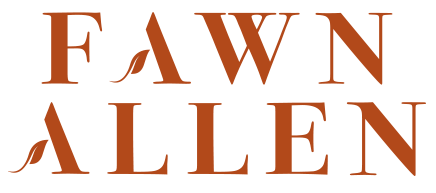MUSINGS, INSPIRATIONS, RECIPES, FEATURES & MORE
LATEST / INTERIORS INSPIRATION / COUNTRY & PERIOD HOUSE GUIDES / MUSINGS / SUSTAINABILITY / FEATURES / HEALTHY LIVING
MY TOP 3 AUTUMN PANTRY STAPLES

By Katie Jenson-Hull / The Radiant Nutritionist
A well stocked pantry
My pantry really is my best friend and I’m not kidding. Without a pantry full of easy reachable wholefoods I think I would fall off the healthy bandwagon more often. I’ve made it my personal mission as a Nutritionist to inspire you in the benefits of a well stocked pantry. Your pantry really is key to healthy eating. Having well stocked cupboards is one of the fundamental ways to make home cooked food taste REALLY good. You need to have the right ingredients to hand.
A wholefood diet is food that is in its whole natural form and is full of all the nutrients the body needs. It is also full of wonderful flavour. Once you know how, easy meals can be created with really simple nourishing ingredients and you won’t look back. Wholefoods are also budget friendly and tend to be the items that cost less at the supermarket. Result! A healthy you and a healthy bank balance.
Autumn pantry reset
With the change of the seasons approaching intuitively I want to reach for grounding ingredients. The back to school vibes and routines have got me in the mood for a pantry clear out and reset. My cupboards got rather hammered over the holidays with constant cooking and the never ending search for snacks. It’s time to clear out those out of date ingredients and make way for some nutritious autumn radiant giving ingredients.
I thought it would be fun to share a few of my top pantry ingredients. I’m not going to lie, it was hard to compile them into only a few but here are my top 3 autumn pantry ingredients.

QUINOA
A wholefood “superfood”. Quinoa is a nutrient-dense naturally gluten free grain pronounced KEEN-wah. Remember back in the day when it first rose in popularity and noone knew how to pronounce it. Quinoa is in fact a seed and comes in red, black or white. It is a complete protein source, containing all nine essential amino acids. This makes it a great choice for plant based or vegan diets. Other benefits of quinoa is that it is high in fibre, folate, copper and manganese. It is also a good source of iron, zinc and magnesium.
This anti-inflammatory grain contains quercetin and kaempferol. Both flavonoids that help to protect cells from damage caused by free radicals. Something we all need to be thinking about post summer sun.
Always rinse or soak quinoa before cooking, this reduces various anti nutrients such as saponins, tannin and phytic acid. These can bind onto important nutrients such as iron and hinder absorption.
How to use
I meal prep in bulk and have in the fridge ready to use for easy lunches in early autumn salads or accompanying a selection of seasonal roasted veggies. Also, I love to make quinoa coconut porridge for a protein rich alternative to traditional porridge.

BUCKWHEAT
Unlike the name suggests buckwheat doesn't actually contain any gluten and is naturally gluten free. In my opinion, buckwheat is very much an underrated addition to any pantry. I think people are slightly put off as they are a little unsure as to what to do with it.
Buckwheat is a great source of protein, fibre, magnessium, calcium and iron. It is also a good source of B vits and vitamin K. New routines and slowing down during autumn can lead to a sluggish digestive system. The high fibre content in buckwheat is wonderful for helping to get things moving.
How to use
There are three main forms of buckwheat; these are unhulled grouts, hulled groats and buckwheat flour. I use buckwheat flour in many of my baking recipes, for example breakfast pancakes. I also like to make roasted buckwheat groats to top porridge or yogurt bowls with. Roasted with cinnamon, coconut oil and honey. I also love to boil buckwheat groats to have with roasted veg or I make them into a savory porridge with mushrooms and a poached egg. So delish!

NUTS
All the wholesome and grounding dishes of autumn lend themselves well to the use of nuts. Think walnuts, pecans, hazelnuts and almonds. Such a wonderful hit of vitamin E, protein, healthy fats and omega 3, selenium and copper. Nuts are a cornerstone of the Mediterranean diet which boosts many health benefits. All nuts have varying vitamins and mineral contents.
How to use
After a trip to the Alps last March I realised how nuts where an area of my pantry really that I personally hadn’t tapped into as much as I should. The French use nutritious nuts in so many of their dishes. My favourite was a super wholesome farro, butternut squash, blue cheese and hazelnut stew that I enjoyed in a gorgeous organic cafe in Chamonix. Since then I have been experimenting with adding nuts daily into my diet, adding as toppings to porridge-savory or sweet and making my own nut milks.
This autumn why not try making your own nut butters or nut milk? Almond nut butter is so simple to make and once you’ve made your own you won’t look back.
To make add 3 cups of pre roasted almonds (roast almonds in the oven at 180c for 10 minutes stirring halfway through). Once the almonds have cooled add to a blender and blitz until smooth. Stop half way through to stir down the sides. You can add a little cinnamon or vanilla essence for different flavours.
Something a little extra
I know I said three pantry staples, but as I said it was tough to narrow it down to only three. I would like to also add in spices and good quality fats. Now is the time to add spices to everything if you don’t already. Think cinnamon, ginger and cardamom. Each with such an amazing array of health benefits and anti-inflammatory properties. Add cinnamon to breakfasts to help stabilise blood sugars, sip on ginger tea and spice up your baking with cardamom. Cardamon goes exceptionally well with this season's plums, apples and pears.
I wanted to include good quality oils such as coconut oil, ghee or extra virgin olive oil because many of Autumns seasonal fresh produce contains beta-carotene. Think pumpkin, squash, sweet potato, dark leafy greens such as kale and spinach. Beta carotene is the plant based form of vitamin A and is a fat soluble vitamin. The addition of fat for example in the cooking process aids absorption of the beta carotene.
I hope you have great fun setting up your pantry. Remember, it can be as fancy as you like, check out Pinterest for some amazing pantry set ups. Or like me, choose to recycle vessels like old glass jars. Do whatever makes it inspiring and easy to maneuver your way around your cupboards and inspires you to play with real wholefoods.
Much love,
Katie x




